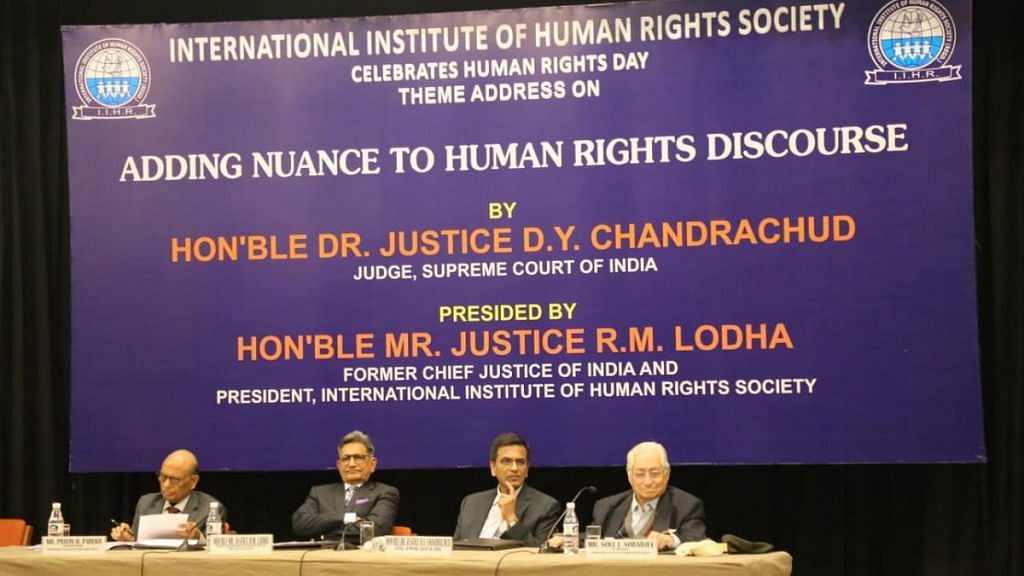New Delhi: Former Chief Justice of India R.M. Lodha Tuesday took a dim view of calls for instant punishment against suspects of crimes such as rape.
“The call for lynching of rapists reminds us that society is going back to the days of Code of Hammurabi,” Lodha said at an event organised Tuesday, referring to a set of standards for commercial interactions that dates back to the 1700s BCE.
Owing its origin to the times of the Babylonian king Hammurabi, the code, engraved on a pillar, was one of the earliest examples of “eye-for-an-eye” kind of justice.
“The demand of such treatment by people to the accused of Unnao rape and murder case shows that the atmosphere of mob mentality is prevailing in society,” Lodha said. “People are going back to Hammurabi’s code: Eye-for-eye, tooth-for-tooth and nail-for-nail.”
Speaking at an event organised on Human Rights Day by the International Institute of Human Rights Society, an organisation he presides over, Lodha also weighed in on the 6 December “encounter” of four men accused of raping and killing a 27-year-old Hyderabad veterinarian.
“Are we heading to a society of lawlessness? Has the rule of law run its course?” he asked. “What has happened to constitutional rights and procedural safeguards?”
He also referred to a statement about the episode made by Telangana minister Talasani Srinivas Yadav, who said the state “is very strong in taking immediate action”.
“[This] raises a big question… are we junking due process and justice system?” Lodha added.
Also Read: ‘We’re not monsters’ — IPS officers say celebration of ‘Hyderabad encounter’ in poor taste
‘Human dignity’ true measure of development
Lodha, who retired as CJI in 2014, said the true measure of a nation’s development was not economic growth but “human dignity”.
“It is about being able to express opinions. Being able to speak freely enables people to share and gain knowledge,” he added. “It’s a guarantee to better treatment of people and overall human rights.”
He also highlighted certain shortcomings in the Indian justice delivery system, ranging from lack of police reforms to infrastructural deficiencies for scientific investigation.
Lodha ended his speech with a reminder that “Human Rights Day may not be one-day affair in a year…. it should be everyday affair for everyone of us”.
‘Courts not first resort for human rights’
The event was organised to commemorate the United Nations General Assembly’s adoption and proclamation of the Universal Declaration of Human Rights on 10 December 1948.
The opening address was delivered by senior advocate Soli Sorabjee, who is also the vice-president of the International Institute of Human Rights Society.
Speakers at the event included Supreme Court judge Justice D.Y. Chandrachud, who called for the participation of all sections of society — the citizens and the elected representatives — in enforcing human rights.
Courts, he said, should not be the first resort for people to enforce their human rights. “Courts are often described as the last bastion of human rights, but the word last should not be misconstrued as the only bastion of human rights,” he added.
“The assertion of human rights before a court is but the last step in a long line of deliberative processes that must be protected if our human rights are to be given effect, otherwise, we will entrust our courts with everything and will be disappointed with their ability to achieve nothing,” Chandrachud said.
“By placing all our problems at the doorstep of the court, the moment they arise, we obliterate the powerful role of our citizens and elected representatives in solving issues and require the court to undertake a task it was never engineered to do.”
Also Read: Singham to Simmba: Do Indian movies glorify and normalise mob justice?
